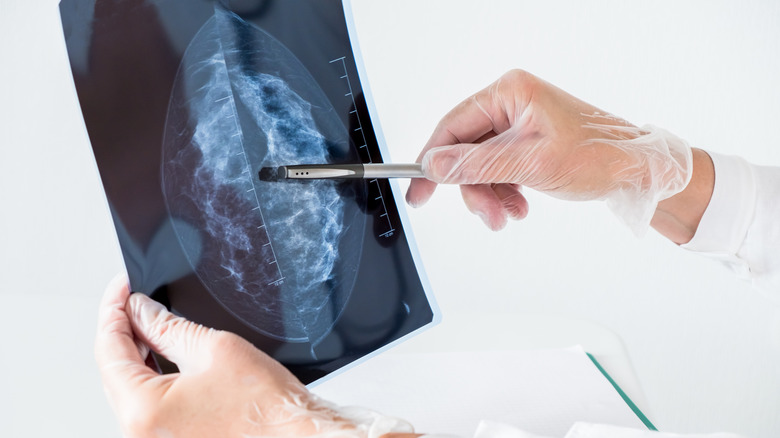Senator Amy Klobuchar's Cancer Diagnosis Explained
Senator Amy Klobuchar revealed on Thursday, September 9 that she had been diagnosed with stage 1 breast cancer earlier in the year. In a post on Medium, Klobuchar wrote that doctors discovered calcifications during a routine mammogram in February. The Minnesota senator added that she underwent a lumpectomy and had radiation treatment in May. "After additional follow-up visits, it was determined in August that the treatment went well," she wrote.
Breast cancer is the most common kind of cancer among women aside from skin cancer. One in every eight women will develop breast cancer, which means the chances of an average woman being diagnosed with it is 13%, according to the American Cancer Society. It is the second leading cause of cancer death in women after lung cancer. Stage 1 breast cancer is considered to be an early stage of the disease, and is therefore "very treatable but survivable," according to the National Breast Cancer Foundation.
Understanding stage 1 breast cancer
Stage 1 breast cancer has two phases: 1A and 1B (via National Breast Cancer Foundation). In 1A breast cancer, the cancer cells are contained to the area where the abnormal cell growth began, and it has not spread to the lymph nodes. Tumors in this stage are generally smaller than the average peanut. In 1B breast cancer, there is evidence of tiny cancer cells in the lymph nodes. There may or may not be a tumor in the breast and if there is, it could be smaller than a peanut.
In both cases, the National Breast Cancer Foundation notes that surgery and radiation are often the normal courses of treatment. Chemotherapy is not usually necessary. While Klobuchar did not elaborate which phase of stage 1 breast cancer she had, she explained in a statement that her doctors believe her chances of developing breast cancer again are "no greater than the average person."
Early detection plays a significant role in detecting cancer, and Klobuchar emphasized this fact, urging her readers not to put off any routine health checkups or exams.


